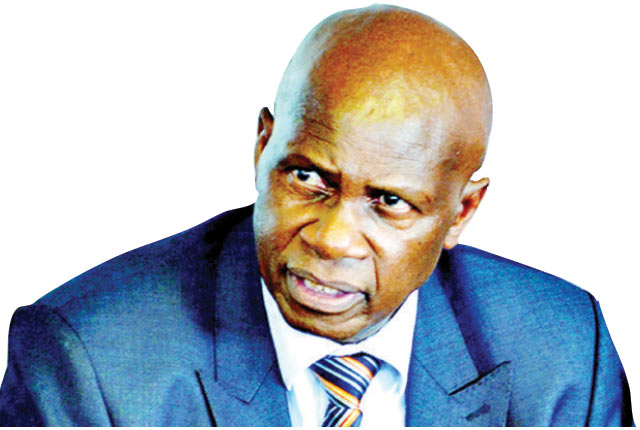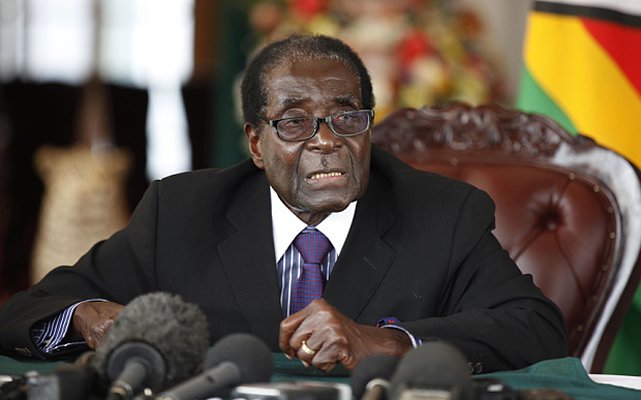EDITORIAL COMMENT: IMF sanctions removal sets tone for economic revival

ZIMBABWE is slowly normalising its relations with global multilateral institutions as it intensifies efforts to extricate the economy from years of underperformance wrought by sanctions. It has embarked on a reform and re-engagement process that has seen it reach out to global lenders such as the World Bank, International Monetary Fund and African Development Bank.
Granted, the country owes a lot of money to these institutions but it has made significant headway in convincing them that it is on track to meeting some of their prescriptions. Finance and Economic Development Minister Patrick Chinamasa and his team at Treasury have been quietly plugging away at the stubborn technocrats at the Bretton Woods institutions and their efforts have been rewarded with the IMF announcing this week that it has removed its sanctions on Zimbabwe, a month after the country cleared its $107 million arrears to the multi-lateral lending institution.
The landmark move was immediately welcomed by Government which said the lifting of the remedial measures meant the country was now eligible for any facility that is given to shareholder member countries. The IMF executive board on Monday ratified the removal of the remedial measures applied to Zimbabwe which had been in place as a result of the country’s overdue financial obligations to the Poverty Reduction and Growth Trust (PRGT).
The measures to be removed include the declaration of non-cooperation with the IMF, the suspension of technical assistance and the removal of Zimbabwe from the list of PRGT-eligible countries. This is a major breakthrough for Zimbabwe which will enhance the country’s credit rating while opening new lines of cheap finance — badly needed to kickstart key sectors of the economy. We commend the IMF for being sincere in its engagement with Zimbabwe and honest enough to acknowledge the tremendous work that has gone into the debt clearance process.
In this vein, we urge the World Bank and AfDB to continue cooperating with Zimbabwe as it works towards liquidating its debts to them. Speaking after the IMF lifted sanctions on Monday, Minister Chinamasa said the move meant Zimbabwe and the IMF had restored their relations. “Because of the fact that we were in arrears, we were not eligible to access any facilities, which we are entitled to as a shareholder member,” he said.
“Zimbabwe is a shareholder of the IMF and as a shareholder, we are entitled to certain facilities which normally come at good rates of interest. The rules are that if a country falls into arrears, you cannot access those facilities, they then put a declaration of non-cooperation.”
This is good news for Zimbabwe as it is now eligible for any facilities which are given to shareholder member countries and can also now apply for certain facilities with the application being considered on its merit.
Whereas, when there was the declaration of non-cooperation, the country was not even eligible to apply, the lifting of the declaration of non-cooperation sends a very good signal that Zimbabwe has mended relations with the IMF.
The IMF statement confirming the removal of its “remedial measures”, read: “The executive board of the IMF approved today (Monday) the removal of the remedial measures applied to Zimbabwe that had been in place because of the member’s overdue financial obligations to the Poverty
Reduction and Growth Trust (PRGT), effective November 14, 2016. ‘These measures are: (i) declaration of non-cooperation with the IMF (ii) the suspension of technical assistance (which had already been partially lifted), and (iii) the removal of Zimbabwe from the list of PRGT-eligible countries. ‘This follows Zimbabwe’s full settlement of all of its overdue financial obligations to the PRGT of SDR 78.3 million (about $107.9 million) on October 20, 2016. Zimbabwe had been in continuous arrears to the PRGT since February 2001 and was the only case of protracted arrears to the PRGT. Zimbabwe is now current on all of its financial obligations to the IMF.”
Following the liquidation of the IMF debt, Zimbabwe is now angling to resolve its arrears to the AfDB and the World Bank — both owed a combined sum of $1.7 billion. The country scored a major breakthrough last year when the multilateral institutions agreed to its debt clearance plan.
Monetary authorities have indicated that significant progress has been made towards the re-engagement process to clear the country’s external debt arrears with multilateral financial institutions.
This is crucial because external debt arrears clearance will improve Zimbabwe’s country risk premium through reducing its debt overhang. This will also enhance the country’s access to foreign finance. The lifting of sanctions by the IMF has come at an opportune time for the country as it will enhance its economic revival efforts.
The overall image of the country as a pariah state will also fall away. The readmission of Zimbabwe into the community of nations is long overdue and we hope other bodies and nations that have imposed sanctions on the country have been put on notice.








Comments